Contents
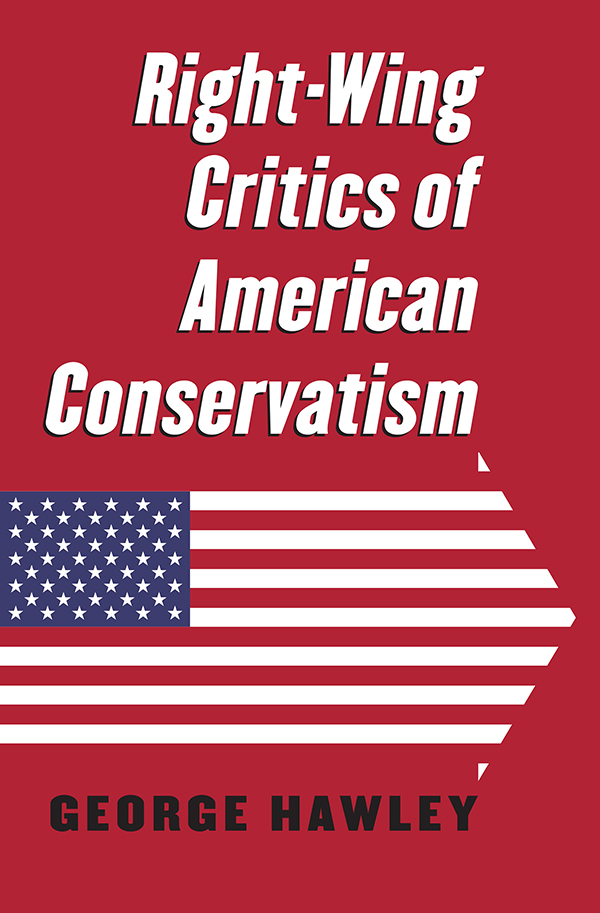
Right-Wing
Critics of American
Conservatism
Right-Wing
Critics of
American
Conservatism
George Hawley
 university press of kansas
university press of kansas
2016 by the University Press of Kansas
All rights reserved
Published by the University Press of Kansas (Lawrence, Kansas 66045 ), which was organized by the Kansas Board of Regents and is operated and funded by Emporia State University, Fort Hays State University, Kansas State University, Pittsburg State University, the University of Kansas, and Wichita State University
Library of Congress Cataloging-in-Publication Data
Hawley, George / Right-wing critics of American conservatism
Includes bibliographical references and index.
ISBN 9780700621934 (cloth : alk. paper)
ISBN 9780700621989 (ebook)
ConservatismUnited States. | Right and left (Political science)United States. | RadicalsUnited States.
JC573.2.U6 H39 2015
DDC 320.520973dc23
2015032191
British Library Cataloguing-in-Publication Data is available.
Printed in the United States of America
The paper used in this publication is recycled and contains percent postconsumer waste. It is acid free and meets the minimum requirements of the American National Standard for Permanence of Paper for Printed Library Materials Z.- 1992 .
For Wyatt
contents
acknowledgments
I am grateful to the many patient and generous people who helped make this project possible. As this book is a major deviation from my primary research agenda (my previous scholarly work was focused exclusively on public opinion, voter behavior, and demographics), I needed much assistance as I transformed a vague idea into a finished product.
I am grateful to those who read all or parts of this book and offered me valuable feedback. Charles Myers of the University Press of Kansas was an especially helpful, encouraging, and patient editor throughout this process. I also offer my thanks to the anonymous reviewers. They caught many important shortcomings in an earlier version of this book; their advice was invaluable. I hope they find that I have addressed their most important concerns.
I offer special thanks to Leonard Chan, who provided thorough critiques of a previous draft. Although he could not have known it at the time, Brickey LeQuire of Samford University also helped me substantially. By coincidence, Brickey sat next to me on a flight home from an academic conference. Over the course of our short conversation, he helped me clarify my thoughts on the nature of left and right. I am also grateful to Mike Taylor and all the great coaches at Headhunters Combatives; it turns out that MMA training is an excellent coda to a day otherwise spent in the library or in front of a computer screen.
I offer my thanks to the University of Alabama, which has generously kept me employed since 2013 . I am especially grateful to Richard Fording, the chair of the Department of Political Science. Since arriving at UA, I have always felt free to follow my research interests wherever they take me, which is why I felt confident beginning this ambitious and time-consuming project. George Thompson, our publisher in residence, offered helpful advice throughout this project. I also thank the anonymous librarians who quickly processed my countless interlibrary loan requests.
I am most thankful to my wife, Kristen. For all of my books, she has served as a diligent editor and my greatest source of encouragement. A number of annoying habits plague my writing. Kristen patiently (and mercilessly) points out my weird sentence structures, repetitive word choices, misspellings, non sequiturs, and nonsensical phrases. If you find this book comprehensible, you have her to thank. I also thank my sons, Henry and Wyatt. Although my time with them eats into hours that could otherwise be spent writing and researching, they are also an indispensable source of motivation.
If this work is of any scholarly value, the credit must be shared with the preceding people. Any mistakes belong to me alone.
introduction
The American conservative movement faces a crisis. Although the death of American conservatism has been heralded many times, the inescapable reality is that the mainstream conservative movement, and the Republican Party it endorses, will face an existential challenge in the decades ahead. An increasing percentage of the American electorate rejects many of the essential premises of the American right. The social milieu of twenty-first century America is fundamentally different than it was in the postwar years when the coherent ideology called conservatism was forged by journalists and public intellectuals like Russell Kirk, William F. Buckley, and Frank Meyer, along with politicians like Barry Goldwater and Ronald Reagan.
The United States is more racially diverse than ever before, which would not necessarily be problematic for conservatism were it not for the fact that American minorities are, on average, far more politically progressive than non-Hispanic whites. This trend shows no sign of abating. In the absence of major opinion change among African Americans, Asian Americans, and Latinos, the constituency for conservative politics will continue to shrink.
Americans are also increasingly secular. Although Christian faith is not a prerequisite for supporting conservative public policies, American conservatism has traditionally had a transparent religious quality, and devoted Christians have long been some of the most vocal supporters of American conservatism. If the trend toward secularization continues, the number of Americans who endorse an ideology that is at least implicitly religious will further decline.
World politics have changed profoundly since American conservatism as it is presently understood arrived on the political scene after World War II. It is impossible to overstate the importance of the cold war to American conservatism. The Soviet menace held the three disparate legs of the conservative stool together. Hostility to communism united Christian traditionalists, national security conservatives, and free-market capitaliststhree groups that are not necessarily political allies. Since the end of the cold war, the conservative intellectual movement has been slow to adjust to the new global reality. When the Soviet Union collapsed, and the raison dtre of the American empire collapsed with it, few prominent conservatives endorsed scaling back American commitments overseas. The terrorist attacks of September , 2001 , and the struggle against Islamic terrorism seemed to breathe new life into conservative arguments for Americas role as defender of the free world. However, in the aftermath of a disastrous war in Iraq, the old national security conservatives appear increasingly anachronistic and out of touch with contemporary reality.
Prognosticators who speculate how conservatism can survive and even thrive in the twenty-first century tend to fall into two camps, depending on their own political persuasions. On one side are those making the case that conservatives must move to the political center and soften their harder edges. They do not necessarily say that the American conservative movement must abandon its fundamental premises, but it should relax its stance on issues like gay marriage and abortion and finally make a formal peace with the welfare state. In other words, they argue that conservatism should become Conservatism Lite.
On the opposing side, we have those who argue that conservatives, and Republicans in office, should double down and become even more aggressive as they pursue the same platform they have always endorsed. We see this line of thinking in the still powerful Tea Party movement. Those holding this position contend that conservatism never failed; it has never really been tried. According to this argument, by sticking to its principles and fighting for them even more forcefully, conservatism can win new converts and revive American greatness.




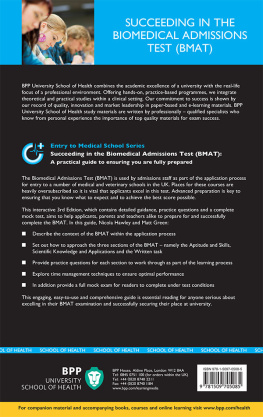
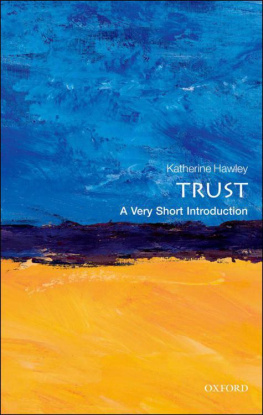
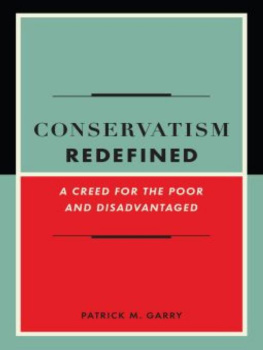
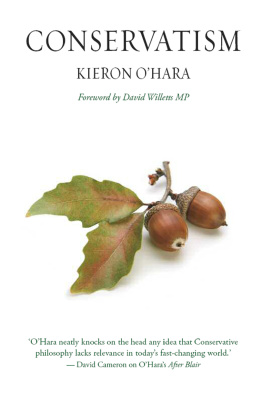
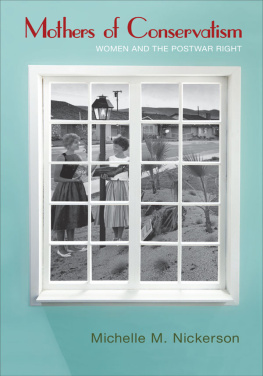
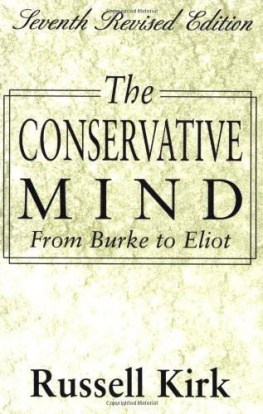

 university press of kansas
university press of kansas